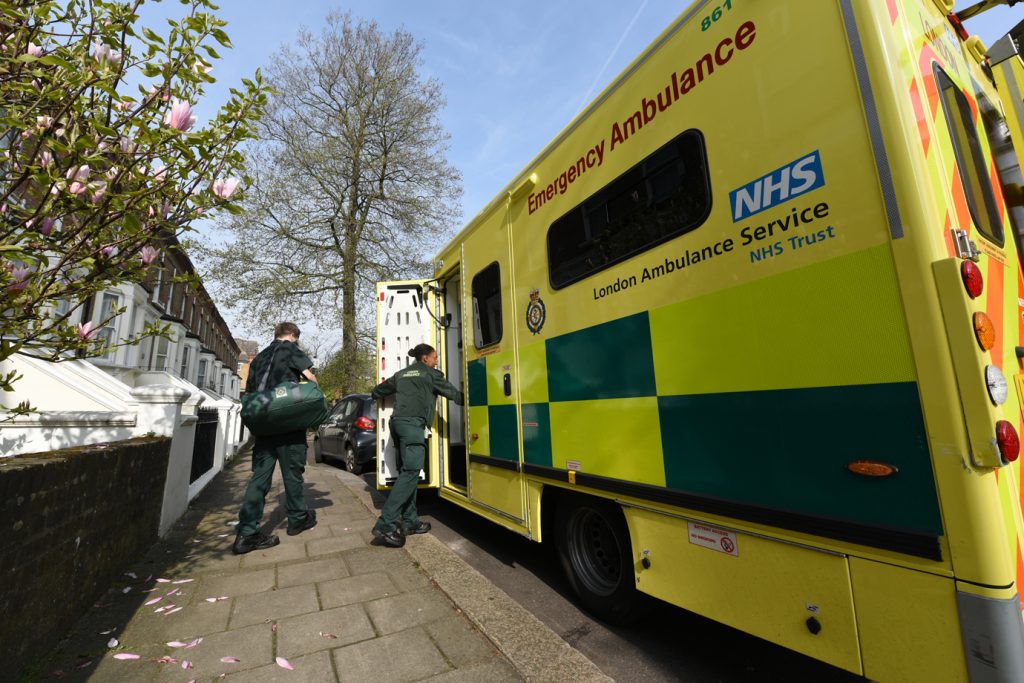London Ambulance Service commits to improving care for thousands of patients with fastest growing genetic condition
London Ambulance Service has unveiled a wide-ranging plan to further strengthen the care it provides to patients that are seriously ill with sickle cell disease.

Sickle cell disease is a genetic health condition that is particularly common in people with an African or Caribbean family background and which affects the red blood cells. It is a serious and lifelong condition, although treatment can help manage many of the symptoms. The main symptoms of sickle cell disease are painful ‘crises’ which commonly causes severe pain and can last several days, increased risk of infection and a higher risk of other severe illnesses, such as stroke.
To develop its action plan, LAS sought the views of patients who had used the Service during a sickle cell crisis to understand how care could be improved. It also collated feedback from frontline staff and used clinical audit data.
The Service commissioned two reports from Sickle Cell Society and Croydon Sickle Cell and Thalassaemia Support Group. The two reports, looking at care given to these patients, identified that while a significant number of patients were happy with their care, too many had had experiences which affected their confidence in the Service.
Dr Fenella Wrigley, Chief Medical Officer at London Ambulance Service, said:
“I’m pleased to hear that many patients with sickle cell disease feel that there has been significant improvements in the care we provide since we started working with the Sickle Cell Society over 10 years ago.
“While we have made improvements, I fully recognise that we need to continue to support the needs of patients with sickle cell disorder and ensure that they feel listened to.
“Our emergency call handlers and ambulance crews are frequently the first contact with the NHS for patients experiencing a sickle cell crisis and it’s vital that we can advocate for them.
“We are committed to delivering outstanding urgent and emergency care for everyone who lives in our city. In a modern ambulance service this means delivering more personalised care for our patients including sickle cell patients.
“We are immensely grateful for the work that Sickle Cell Society and the Croydon Sickle Cell and Thalassaemia Support Group have done to help us understand how we can further improve the care we provide patients.”
Amongst the steps London Ambulance Service will be taking include more detailed training for all frontline clinicians, including improving the use of pain relief and other support the patient needs during a crisis for example warmth and not trying to walk.
The Service will also work with NHS hospitals across London to develop accessible patient specific care plans for sickle cell patients and develop pathways to enable ambulance crews to convey patients with sickle cell disease to specialist units.
London Ambulance Service attends approximately 5,700 incidents per year for sickle cell patients in London. Two thirds of the UK’s sickle cell sufferers live in London, or receive their specialist care in London.
John James OBE, Chief Executive of the Sickle Cell Society, said:
“A sickle cell crisis is among the most excruciating, debilitating, and dangerous symptoms of the condition. These episodes often require urgent hospital care, sometimes lasting weeks or months.
“Patients often compare the pain to the sensation of bones being crushed, or repeatedly broken – leaving them with limited ability to move or speak. Without prompt and skilled intervention, a sickle cell crisis can be life-threatening.
“Our report is crystal clear in its framing of the huge challenges faced by sickle cell patients in London when they are at their most vulnerable.
“We welcome LAS commissioning this report, and their commitment to the development of an action plan to address its recommendations. It is essential that this leads to real, lasting change.”
Mary Clarke, Patron at Croydon Sickle Cell and Thalassaemia Support Group, said:
“We are proud to have taken part in this exciting and innovative study, which brought together frontline healthcare professionals and members of the Croydon community to better understand the experiences of people living with sickle cell disorder during an emergency.
“The study aimed to amplify the authentic voices of people living with sickle cell, particularly in the context of experiencing a painful sickle cell crisis and requiring emergency ambulance care.
“This is just the beginning of a wider commitment to ensure more compassionate, timely, and effective care for people living with sickle cell disorder.”
Today’s plan builds on the previous work done by London Ambulance Service to improve the care for Londoners with sickle cell disease and the 2021 No-one is Listening report and forms part of a wider initiative from London Ambulance Service to provide more individualised care for Londoners.

Follow us on social media: